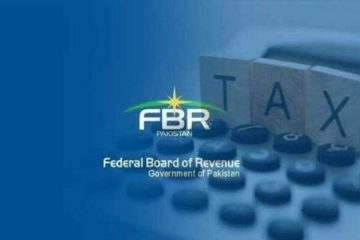The disclosure of information by a public servant is a crucial aspect of governance, ensuring the confidentiality of sensitive data while allowing limited and necessary disclosures under specific conditions. Section 216 of the Ordinance establishes the confidentiality of particulars contained in various documents, statements, evidence, and proceedings related to tax and financial matters.
General Confidentiality Rule
All particulars contained in statements, returns, accounts, documents, evidence, affidavits, depositions, and records of assessment or recovery proceedings are to be kept confidential. A public servant is prohibited from disclosing such information unless permitted under the Ordinance. This restriction ensures taxpayer privacy and maintains the integrity of financial disclosures.
Legal Protections and Restrictions
Sub-section (2) reinforces this confidentiality by overriding other laws, including the Qanun-e-Shahadat, the National Accountability Ordinance, the Federal Investigation Agency Act, and the Right of Access to Information Act. It prevents courts and other authorities from compelling a public servant to produce any records or evidence related to tax proceedings, voluntary asset declarations, or general income tax department records, except as provided under the Ordinance.
Exceptions Permitting Disclosure
However, sub-section (3) provides several exceptions where disclosure is permitted. These include disclosures to persons executing the Ordinance, individuals authorized by the Commissioner for data processing, for the service of notices or demand recovery, to the Auditor-General of Pakistan and its appointed officers, and government officers for taxation purposes. Additionally, information may be shared with authorities overseeing federal excise, sales tax, wealth tax, or customs, as necessary for enforcement.
Further exceptions include disclosures to the State Bank of Pakistan for compiling financial statistics, under the Foreign Exchange Regulation Act, or to regulatory bodies such as the Securities and Exchange Commission of Pakistan (SECP). Specific provisions allow sharing of salary information with the Employees Old Age Benefit Institution, tax data with NADRA for broadening the tax base, and disclosures in legal proceedings involving tax misconduct or offences under the Pakistan Penal Code.
Legal and Regulatory Disclosures
Public servants may also disclose information to a Civil Court in cases involving the Federal Government or tax authorities, in prosecutions for offences under the Ordinance, and during inquiries into the conduct of tax officials or public servants. Additionally, disclosures can be made to foreign governments under tax treaties, to the Federal Tax Ombudsman, the Financial Monitoring Unit for anti-money laundering purposes, and in cases involving high-level public officials and their financial dealings, except where expressly exempted by the National Accountability Ordinance.
Special Cases of Disclosure
The public servants may produce documents in court where permitted by law. Sub-sections (5) and (6) empower the Federal Government to publish taxpayer information with prior approval, particularly regarding public office holders. Sub-section (6A) allows the Federal Board of Revenue (FBR) to provide anonymized data for analysis to broaden the tax base, ensuring taxpayer confidentiality.
Sub-sections (6B) and (6C) permit the publication of names of offshore tax evaders and enablers if the evasion exceeds Pak Rs. 2.5 million, reinforcing transparency and deterrence against tax avoidance. Lastly, sub-section (7) extends confidentiality obligations to any individual receiving such information, treating them as public servants under the law. Sub-section (8) stipulates that prosecution under this section requires official authorization, ensuring due process.
In conclusion, Section 216 strikes a balance between taxpayer confidentiality and necessary disclosures for enforcement, regulatory compliance, and legal proceedings. It safeguards sensitive financial data while allowing transparency and accountability where required, reinforcing the integrity of the taxation system.







